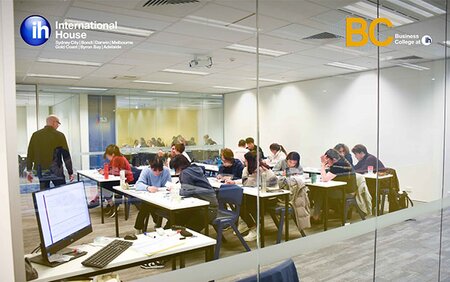
At the IALC Annual General Meeting in Toronto on 19 April 2012, members endorsed new membership policies that were substantially influenced by a survey of agents.
IALC’s aim is slow growth through the addition of high-quality language schools and application is still by invitation. But the new rules allow IALC to select from a wider range of world-leading independent language schools.
The changes affect a member school‘s ownership, number of centres, territorial protection, affiliations and brand licensing.
Key changes:
A simpler definition of an IALC school allows for different types of private ownership and management including foundations, families, individuals, partnerships, charities and limited companies. Prospective members must be economically self-sufficient and not part of a large chain or corporate group of language schools. A school that meets these criteria but is not completely under private ownership may be accepted at IALC’s discretion on a case-by-case basis.
Territorial protection has been reduced in each category of destination:
•Category 1 – less visited destinations: may have up to 2 members
•Category 2 – medium-demand destinations: may have up to 3 members
•Category 3 – high-demand destinations: may have up to 5 members
Existing members may now expand into a full destination. “Neither we nor agents like to see a longstanding member of high quality suddenly leave the association due, in effect, to their success,” explains Jan Capper, executive director.
The maximum number of centres an IALC member may have is now defined as a percentage of total membership. A new member may not represent more than 5% of total IALC membership. An existing member may represent up to 10%. Currently no member represents more than 4%.
Members may now hold membership of other international networks of independent schools. “Unity behind one brand has distinct advantages but is no longer viable. Sometimes when an IALC school is bought by a big chain, we look for a replacement in that destination but the suitable candidates are already in other networks,” says Capper. Members of other networks will be considered for IALC membership on a case-by-case basis, and as a minimum requirement they must have their own school brand.
The final policy change allows IALC members to license rather than own an associate school. “What matters is that the licensee meets our requirements and delivers a quality service to agents and students,” says Capper. “We don’t anticipate many cases, but the new Estudio Sampere licensee in Cuba is an example. The school will be inspected and must join IALC as a full member. If quality is an issue, Estudio Sampere must either terminate the license agreement or face losing membership.”
The strategic review that led to the changes took two years to complete. It began at the IALC AGM in Galway in 2010 and was completed at the AGM in Toronto in April 2012. It drew on a survey completed by 267 agents as well as member surveys and discussions.
More Information:
IALC website
Contact:



